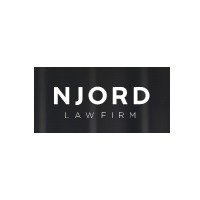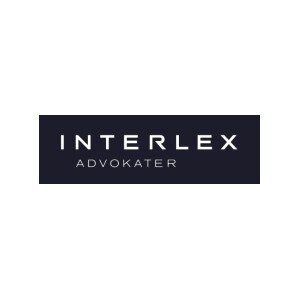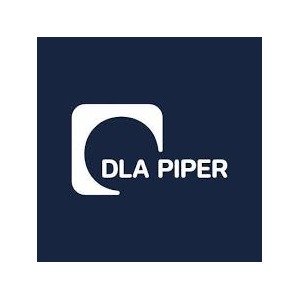Best Renewable & Alternative Energy Lawyers in Denmark
Share your needs with us, get contacted by law firms.
Free. Takes 2 min.
Or refine your search by selecting a city:
List of the best lawyers in Denmark
About Renewable & Alternative Energy Law in Denmark
Denmark is recognized globally as a leader in renewable and alternative energy. The Danish government has made significant investments in developing wind, solar, and bioenergy infrastructure, with ambitious national goals aimed at making the country carbon-neutral by 2050. Renewable and alternative energy law in Denmark governs issues related to the production, distribution, and consumption of energy derived from non-fossil fuel sources such as wind, solar, biomass, and geothermal energy. These laws ensure the sector’s sustainability, regulate market participants, set safety and operational standards, and encourage the adoption of greener energy solutions among businesses and households.
Why You May Need a Lawyer
Legal expertise can be crucial when dealing with the complexities of renewable and alternative energy projects in Denmark. Common situations where people may require legal help include:
- Project development and planning - Navigating permit requirements, land use, and environmental assessments for energy installations such as wind farms or solar parks.
- Energy contracts - Drafting, reviewing, or negotiating purchase agreements, power purchase agreements (PPAs), or construction contracts.
- Regulatory compliance - Ensuring projects comply with the Danish Energy Agency, environmental guidelines, and EU directives.
- Dispute resolution - Addressing conflicts that may arise between landowners, developers, contractors, or government entities.
- Financing and subsidies - Advising on available government incentives, application processes, and compliance with subsidy requirements.
- Business formation and joint ventures - Setting up energy companies or entering into partnerships for project development.
- Intellectual property - Protecting innovations related to renewable technologies.
Local Laws Overview
The legal framework governing renewable and alternative energy in Denmark is influenced by both national and European Union legislation. Noteworthy aspects include:
- The Danish Energy Act - Central legislation managing the production, distribution, and supply of energy.
- Promotion of Renewable Energy Act - Aims to support the transition from fossil fuels to renewables, containing provisions on subsidies and feed-in tariffs.
- Planning and Environmental Laws - Regulate site selection, zoning, environmental impact assessments, and public participation for energy projects.
- Grid Connection Rules - Address the technical and economic terms for connecting renewable installations to the electricity grid.
- Licensing and Permitting - Legal procedures for obtaining licenses for construction and operation of energy facilities.
- EU Directives - Danish regulations align with EU policies on emissions reduction, renewable targets, and internal energy market competition.
Frequently Asked Questions
What types of renewable energy are most common in Denmark?
Wind energy is the most prominent, followed by biomass, solar power, and smaller contributions from geothermal and hydropower sources.
Do I need a permit to set up solar panels or wind turbines on my property?
Yes, permits are required for most installations. The process and requirements differ based on the size and type of installation. Local municipality engagement and sometimes environmental assessments are necessary.
What government incentives are available for renewable energy projects?
Incentives vary but often include feed-in tariffs, subsidies, and grants. These are subject to specific eligibility criteria and conditions set by the Danish Energy Agency.
How does Denmark’s energy law address environmental protection?
Danish energy law incorporates strict environmental standards, requiring impact assessments and ongoing monitoring to minimize harm to nature and communities.
Can foreign companies invest in Danish renewable energy projects?
Yes, Denmark welcomes foreign investment. However, companies must comply with local laws, including registration, project approval, and regulatory standards.
What legal challenges do offshore wind projects face?
Offshore projects involve complex permitting, maritime law, environmental regulations, and coordination with government agencies.
How are disputes in renewable energy projects resolved?
Disputes can be handled through negotiation, mediation, arbitration, or litigation, depending on the contract terms and the issues involved.
What are Power Purchase Agreements (PPAs) in Denmark?
PPAs are contracts between energy producers and buyers that specify the terms for selling renewable energy. They must comply with Danish legal standards and often require legal drafting and thorough review.
Does Denmark follow EU energy regulations?
Yes, Danish law is closely aligned with EU directives on renewables, emissions, and market regulations.
Who regulates the renewable energy sector in Denmark?
The Danish Energy Agency is the main regulatory body, working with other governmental organizations to oversee the sector.
Additional Resources
Those seeking more information or assistance with renewable and alternative energy matters in Denmark may find the following resources helpful:
- Danish Energy Agency - Provides guidance on laws, subsidies, and technical standards.
- Ministry of Climate, Energy and Utilities - Issues policy updates and legislative changes.
- Danish Energy Association - Represents stakeholders across the energy sector.
- Renewable Energy Denmark (RED) - Offers insights and networking for industry specialists.
- European Commission - Energy - Information on EU initiatives affecting Denmark.
Next Steps
If you need legal advice or assistance concerning renewable and alternative energy in Denmark, consider the following steps:
- Clearly identify your needs and the scope of your project or issue.
- Consult the above resources for preliminary information and guidance.
- Seek out a lawyer or law firm specializing in energy law or environmental law in Denmark.
- Prepare all relevant documentation, such as project plans, contracts, and correspondence with authorities.
- Schedule a consultation to discuss your specific circumstances and receive tailored legal advice.
- Confirm your lawyer’s expertise in Danish renewable and alternative energy law and their experience with projects similar to yours.
Proactive engagement with legal professionals can help you meet regulatory requirements, secure subsidies, and ensure the success of your renewable energy endeavors in Denmark.
Lawzana helps you find the best lawyers and law firms in Denmark through a curated and pre-screened list of qualified legal professionals. Our platform offers rankings and detailed profiles of attorneys and law firms, allowing you to compare based on practice areas, including Renewable & Alternative Energy, experience, and client feedback.
Each profile includes a description of the firm's areas of practice, client reviews, team members and partners, year of establishment, spoken languages, office locations, contact information, social media presence, and any published articles or resources. Most firms on our platform speak English and are experienced in both local and international legal matters.
Get a quote from top-rated law firms in Denmark — quickly, securely, and without unnecessary hassle.
Disclaimer:
The information provided on this page is for general informational purposes only and does not constitute legal advice. While we strive to ensure the accuracy and relevance of the content, legal information may change over time, and interpretations of the law can vary. You should always consult with a qualified legal professional for advice specific to your situation.
We disclaim all liability for actions taken or not taken based on the content of this page. If you believe any information is incorrect or outdated, please contact us, and we will review and update it where appropriate.
Browse renewable & alternative energy law firms by city in Denmark
Refine your search by selecting a city.
















